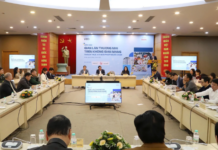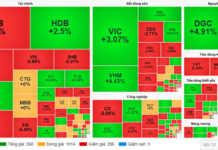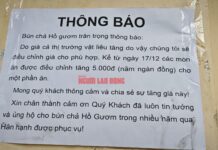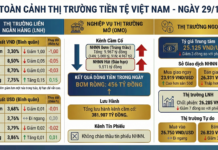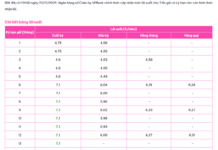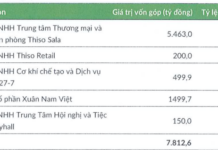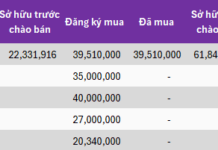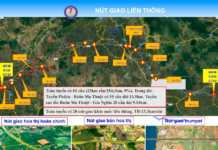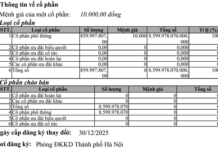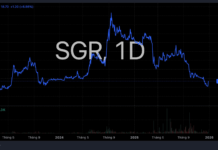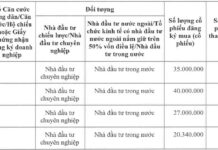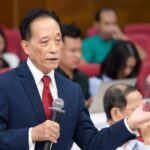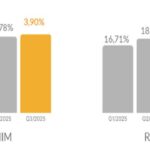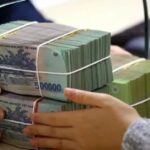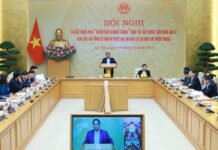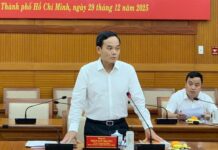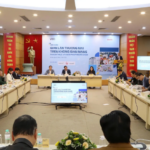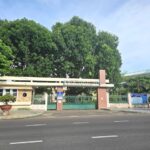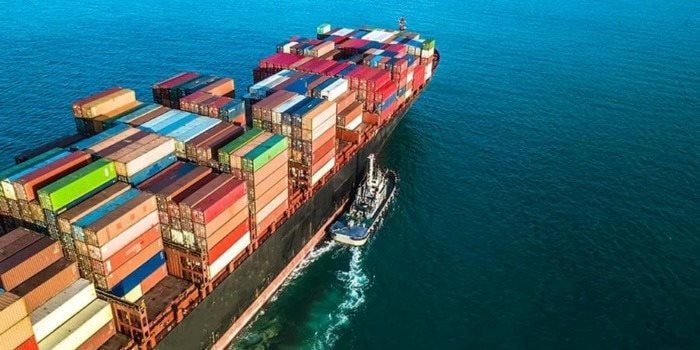
The official dispatch addressed to Ministers, Heads of Ministerial-level Agencies, Governmental Agencies; Chairpersons of People’s Committees of provinces and centrally-run cities; and Chairpersons of State-owned Groups and Corporations, outlines the following:
Since the beginning of 2025, the Government and the Prime Minister have issued numerous directives. Ministries, agencies, and localities have made concerted efforts to implement effective macroeconomic management solutions, boost export activities, and expand markets. Over the first 10 months of 2025, macroeconomic stability has been maintained, inflation controlled, growth promoted, and major economic balances ensured. The total import-export turnover reached USD 762.4 billion, a 17.4% increase compared to the same period last year. Exports totaled USD 391.0 billion, up 16.2%, while imports reached USD 371.4 billion, up 18.6%. The trade surplus stood at USD 19.6 billion.
However, amidst a complex and unpredictable global landscape, challenges outweigh opportunities. To further enhance export activities and achieve the 2025 economic growth target of over 8% while maintaining macroeconomic stability, the Prime Minister directs Ministers, Heads of Ministerial-level Agencies, Governmental Agencies, Chairpersons of People’s Committees of provinces and centrally-run cities, and Chairpersons of State-owned Groups and Corporations to rigorously and effectively implement resolutions and conclusions from the Party Central Committee, Politburo, key leaders, National Assembly, Government, and the Prime Minister’s directives. Key focus areas include:
Ministries, Agencies, and Localities
a) Consistently prioritize macroeconomic stability, inflation control, and ensuring major economic balances to create a favorable business environment, fostering rapid and sustainable growth.
b) Harmoniously and effectively combine monetary, fiscal, and other macroeconomic policies to control inflation as targeted.
State Bank of Vietnam
a) Implement proactive, flexible, and effective monetary policies. Strengthen inspections and supervision to direct credit flows into production, priority sectors, and growth drivers, ensuring credit quality and bad debt control.
b) Manage exchange rates and interest rates in line with market conditions, ensuring flexibility and efficiency to support production, business, and investment.
Ministry of Industry and Trade
a) Vigorously implement solutions to boost exports, especially during year-end and early next year, to meet increased international demand during Christmas and New Year.
b) Enhance trade promotion, diversify markets, products, and supply chains. Accelerate negotiations and signing of bilateral and multilateral trade agreements with potential partners (e.g., GCC, Pakistan, Egypt, MERCOSUR, Algeria). Continue negotiating a trade agreement with the U.S. as directed.
c) Direct commercial offices abroad to support Vietnamese businesses, focusing on helping localities, industry associations, and enterprises effectively utilize FTAs. Provide market information, trade promotion, and connect exporters, importers, and distributors in foreign markets to promote products and brands.
d) Strengthen connections between domestic and foreign-invested enterprises, encouraging domestic firms to join foreign-invested supply chains.
Ministry of Finance
a) Continue implementing an expanded fiscal policy with focus and efficiency.
b) Review and set export and import tax rates aligned with international integration to boost exports and domestic production.
c) Develop specific support measures for businesses affected by U.S. countervailing duties, completing this by November 2025.
d) Direct customs authorities to manage and control goods quality during customs procedures, preventing low-quality imports, intellectual property violations, and origin fraud.
Ministry of Agriculture and Rural Development
a) Lead efforts to combat IUU fishing, remove the “yellow card” warning, invest in fisheries infrastructure, and promote digital transformation for sustainable fisheries development.
b) Expedite market access negotiations and mutual recognition of food safety standards to open markets for Vietnam’s fruits and vegetables.
c) Develop geographical indications, product brands, and traceability systems. Enhance science, technology, innovation, and digital transformation in agriculture.
Ministry of Foreign Affairs
a) Strengthen economic diplomacy to expand markets and support businesses in exporting, investing, and operating effectively abroad.
b) Direct Vietnamese representative offices abroad to connect with localities, businesses, and associations to promote exports.
c) Actively engage GCC member states to build consensus and accelerate Vietnam-GCC FTA negotiations.
Ministries of Industry and Trade, Agriculture and Rural Development, and Foreign Affairs will establish task forces to explore new markets (Middle East, Africa, Latin America), resolve FTA issues, and negotiate new FTAs by early 2026 (with Pakistan, Kuwait, Brazil, Algeria, etc.).
Chairpersons of People’s Committees of Provinces and Centrally-run Cities
a) Proactively address production and export challenges faced by local businesses to facilitate exports within legal frameworks.
b) Regularly update border trade information to advise farmers, producers, and exporters on planning production, packaging, and delivery to avoid congestion and adverse impacts.
State-owned Groups, Corporations, and Export Enterprises: Develop effective production and export plans for year-end, apply science and technology, build brands, enhance product quality, and diversify markets and supply chains.
Deputy Prime Ministers will oversee the implementation of this dispatch by relevant ministries, agencies, and localities.
Government Office will monitor and report on issues beyond its authority.
Dr. Nguyen Tri Hieu: “Storing Physical Gold at Home is a Significant Waste for the Economy”
Dr. Nguyen Tri Hieu asserts that Vietnam has the potential to mobilize 300–500 tons of gold held by its citizens into the economy. However, he emphasizes that this process requires time and patience, cautioning against any rushed approach.
Empowering Financial Growth: Banks Leading the Nation’s Development Journey
Credit recovery is robust and projected to sustain its strong growth trajectory, driven by substantial capital demand from the retail sector and businesses, as well as the ripple effects of public investment. This momentum is poised to significantly contribute to achieving the ambitious GDP growth target of 8% by 2025.
Revitalizing Traditional Crafts: Unlocking Economic Potential Through Strategic Vision
Through the lens of an artisan, entrepreneur, and representative of the people of the capital, we gain a unique perspective on economic development rooted in cultural identity.

